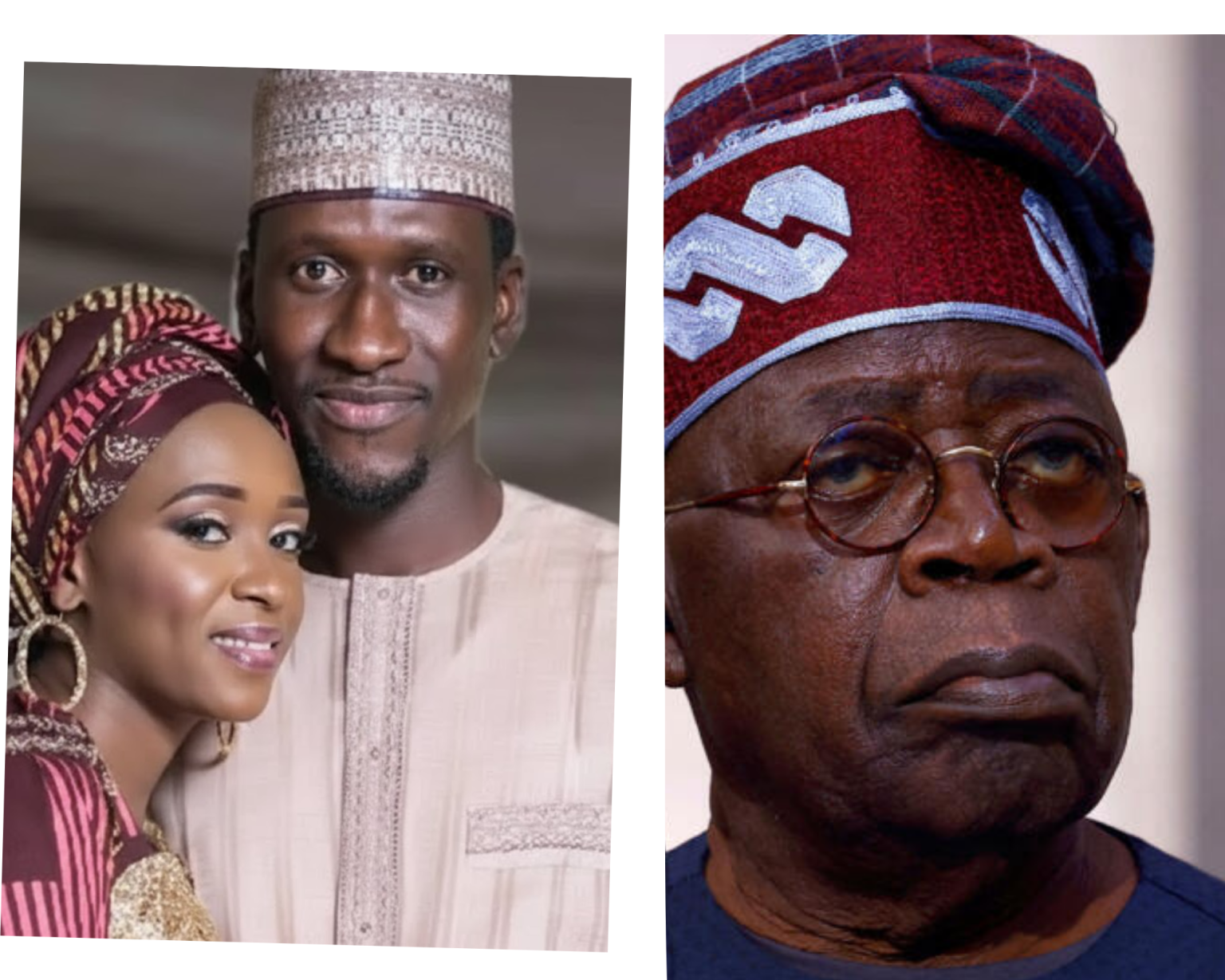By Yunusa UMAR
Several Nigerians have expressed outrage following the Presidential Pardon granted to Maryam Sanda, who was convicted of killing her husband, Bilyaminu Bello, at their Abuja residence on November 19, 2017.
Maryam was among 175 convicts pardoned by President Bola Ahmed Tinubu on Saturday.
Sanda, who was convicted and sentenced to death by hanging in 2020 by the High Court of the Federal Capital Territory, Abuja, spent six years and eight months at the Suleja Medium Security Custodial Centre before her release.
Read Also: Tinubu departs Abuja for Rome
In a statement issued by Bayo Onanuga, Special Adviser to the President on Information and Strategy, the list of those pardoned included illegal miners, white-collar convicts, remorseful drug offenders, foreigners, Major General Mamman Vatsa, Major Akubu, Professor Magaji Garba, and capital offenders such as Maryam Sanda, Ken Saro-Wiwa, and the other Ogoni Eight.
Public Reaction
The decision has sparked widespread criticism, with many Nigerians questioning the fairness and consistency of the country’s justice system.
Femi Ogunshola, a Facebook user, alleged that during the trial, attempts were made to influence the presiding judge.
“I was involved in Maryam Sanda’s case at the FCT High Court, Jabi, Abuja. Pardoning her is, in itself, a criminal offence. I followed the proceedings closely.
The judge invited two of us to his office and shared information that was hard to believe. He said a man kept appearing to him, insisting that he deliver justice.
Various overtures were made to him to pervert the course of justice. His story sounded like a scene from an Africa Magic movie.
He said a ‘heavy Ghana Must Go’ was brought to influence him, but he rejected it. Now she has been pardoned — a decision that should be condemned. Like Bobrisky, she enjoyed some privileges while at Suleja Prison.
This will embolden others. It is sad and terrible — just barely five years. May God save and heal Nigeria from the grip of powerful individuals.”
Social Media Outrage
Another X (formerly Twitter) user, @TheoAbuAgada, expressed disappointment, stating that the real victim, the late Bilyaminu Bello, had been forgotten.
“Maryam Sanda, sentenced to death in 2020 for the culpable homicide of her husband, has been granted a pardon by President Tinubu. She served six years and eight months at the Suleja Medium Security Custodial Centre.
Her family earnestly requested her release, claiming it would greatly benefit her two children. They based their appeal on her exemplary behaviour while incarcerated, her expression of remorse, and her adoption of a new way of life. Na who die lose.”
Similarly, Shuaib Nafisat, a Facebook user, lamented that Maryam was released primarily because of her two children.
“Maryam Sanda, who was convicted for killing her husband, has reportedly been granted presidential clemency because of her two children.
It makes one wonder… will AbdulRahman, the killer of Hafsah, receive the same mercy someday? Subhanallah. 😔 May we never end up with those capable of destroying the very love they once promised to protect.”
Political Reactions
Human rights activist Omoyele Sowore also condemned the decision, describing it as “hypocrisy.”
“Tinubu frees Maryam Sanda, a woman convicted in 2020 for the murder of her husband.
A convicted murderer gets clemency because of connections.
Yet Mazi Nnamdi Kanu, who has never been convicted of any crime, continues to rot in detention while awaiting a sham trial.
This is hypocrisy. #FreeNnamdiKanuNow.”
Online Reactions Continue
An X user, @Waspapping, added:
“Maryam Sanda has been pardoned by President Tinubu. In this country, please don’t let anyone kill you; they’ll walk free, and nothing will happen.” wrote
Another verified X user, @Arojinle, reacted in Yoruba:
“Yorùbá is just all-round. I saw the Maryam Sanda news and just one Yorùbá statement came to mind: ‘Ẹni tó kú ni tiẹ̀ gbé’ — the one who dies is the ultimate loser. Don’t let them kill you o. Yorùbá! ”
The pardon of Maryam Sanda has reignited conversations around justice, privilege, and accountability in Nigeria’s criminal justice system.
As debates continue, many Nigerians are calling for transparency in the selection process for presidential clemency and justice for victims of violent crimes.



